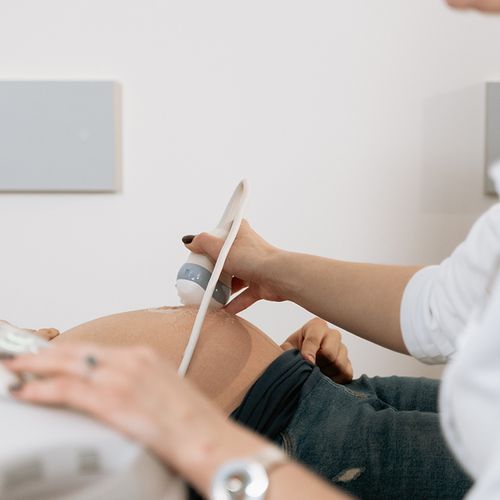You're in the gynecologist's office, feeling vulnerable as can be-naked except for that flimsy gown...feet up in the stirrups...exposing yourself to the world. Your physician is going about her exam, and when you muster up the nerve to mention some weird cramps you had, she sighs and looks at her watch.
If this sounds all too familiar, it's time to ask yourself, Does my gynecologist see me as a whole person? For optimal wellness, you need to have at least one doctor who answers all of your questions and treats you with respect, acknowledging you as a collaborative member of your own health care team. After all, you know your body better than anyone else.
When you feel pressured, the levels of certain brain chemicals are altered, making it likely that you will forget some of the questions you had planned to ask the doctor. This could be dangerous
Example: Suppose that along with those weird abdominal cramps, you've had a few embarrassing incidents with incontinence. If you're too flustered to mention these or if your doctor brushes you off with, "Every woman has those problems occasionally," you've missed the opportunity to investigate these early warning signs of ovarian cancer.
Should You Say “So Long”?
Ideally, a gynecologist will invite you to share information about your whole self-your home environment, workplace, emotional concerns, social support systems, family history, overall health and energy, and personal approach to health care. This makes accurate diagnoses much more likely. For instance, after taking appropriate steps to rule out potentially serious health problems, the doctor can reassure you that your cramps are related to the stress of your new job, or that your occasional incontinence is caused by a pot-a-day coffee habit-but only if she knows about those aspects of your life.
I'm not saying that you should immediately leave your current gynecologist if she takes the hurry-up, waist-down approach. If you have an involved, caring internist or family physician as your primary care provider, you can stick with a gynecologist who focuses only on your reproductive organs if that feels right for you.
It's quite a different story if you lack confidence in the care you are receiving or feel objectified by a gynecologist who never looks beyond the speculum-especially if you use your gynecologist as your primary care physician, as many women do. In that case, try talking with the doctor about your needs. If that doesn't help, it is time to find a physician who is a better fit. Don't feel disloyal. You have a right to be cared for in a way that reflects who you are as a human being.
The first step in finding a new gynecologist is to formulate a personal definition of the ideal doctor. To do this, make a list of what bothers you about your current doctor, as well as what you appreciate
Examples: "He 'joked' that I was a hypochondriac"..."She gives only one word answers to my questions"... "She's punctual." This clarifies that you want a doctor who takes your concerns seriously, answers questions completely and knows your time is valuable.
Next, get referrals from other doctors you respect-or from any nurses you know they often have inside information about physicians). Ask friends for the names of their doctors.
Request a 30-minute consultation with any gynecologist you are considering switching to. For such a nonemergency visit, she should be able to accommodate you within a month or two. During your initial consultation, ask the doctor…
- Where she was trained and how long she has been in practice.
- What certifications she holds. She should be board-certified in gynecology, ideally with a subspecialty certificate in an area important to you, such as maternal/fetal medicine or gynecologic oncology.
- What her philosophy on patient care is. Beware of any response like, "I expect patients to trust in my expertise and comply with my instructions," which suggests a dogmatic approach that does not acknowledge patients individual personalities and preferences.
- How she would handle any specific concern you might have, such as whether to get genetic testing for breast cancer. If you don't understand her response, ask for clarification Discussing your particular health issues allows you to judge whether the doctor is right for you (and also increases the chances that insurance will pay for the visit).
If the doctor seems offended, recalcitrant, dismissive of your questions or eager for the consultation to be over, simply thank her for her time and leave.
The Integrative Option
In your deliberations, consider interviewing an integrative gynecologist-one who combines traditional gynecology with complementary and alternative medicine. The general philosophy of such physicians is that real health springs from prevention and involves an integration of the emotional, spiritual and physical. In other words, no one symptom is treated as a single event, but rather as a part of a larger picture.
For treatment, integrative gynecologists use numerous therapies, such as stress-reduction techniques, nutritional and herbal supplements, and diet and lifestyle changes to promote optimal health. The very nature of this approach to wellness-in which the patient is encouraged to be an active participant in her self-care-guarantees that an integrative gynecologist views a patient as a whole person, rather than a body part with a problem.
Like their conventional counterparts, integrative gynecologists graduate from a regular medical school and are board-certified in gynecology. In addition, they may be certified through the American Board of Holistic Medicine (509-8863046, www.bolisticboard.org), which requires specific additional training. At present in the US, there are only about 200 integrative physicians specializing in women's health, but this number is growing. To find out if there is one in your area, contact…
- The American Holistic Medical Association 410-838-1010, www.holisticmedicine.org).
- The Center for Mind-Body Medicine (202-966-7338, www.cmbm.org).
- The Institute for Functional Medicine (800-228-0622, www.functionalmedicine.org).
Keep looking until you find a gynecologist who can provide the care and respect you deserve.
